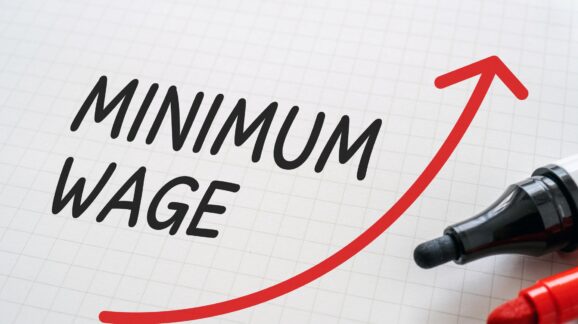Tariffs — Possible Minimum Wage Hikes — Raise Taxes, Harm Workers
Presidential candidate Tom Steyer recently proposed increasing the federal minimum wage to $22 — more than triple the current level of $7.25, and the House of Representatives already passed the Raise the Wage Act, which would increase the federal minimum wage to $15 per hour.
Public debate usually focuses on job losses associated with a minimum wage hike, but the bigger problems are higher taxes and reduced benefits for workers.
To afford higher wages, employers cut back on other benefits, like health insurance, workplace leave flexibility, free meals, free parking or tuition reimbursement. That’s a real loss to workers, considering that non-wage pay is mostly tax-free.
By incentivizing employers to convert nonwage benefits to wages, minimum wage advocates are, probably unknowingly, proposing a massive tax increase on the poor.
For some workers, this would mean a tax increase of up to $2,370 per year at a $15 per hour minimum wage. Depending on which state a worker lives in and other factors, shifting untaxed non-wage pay over to taxable wages could also expose some minimum wage earners to income tax liability, sales taxes and other taxes.
Read the full article at Inside Sources.
